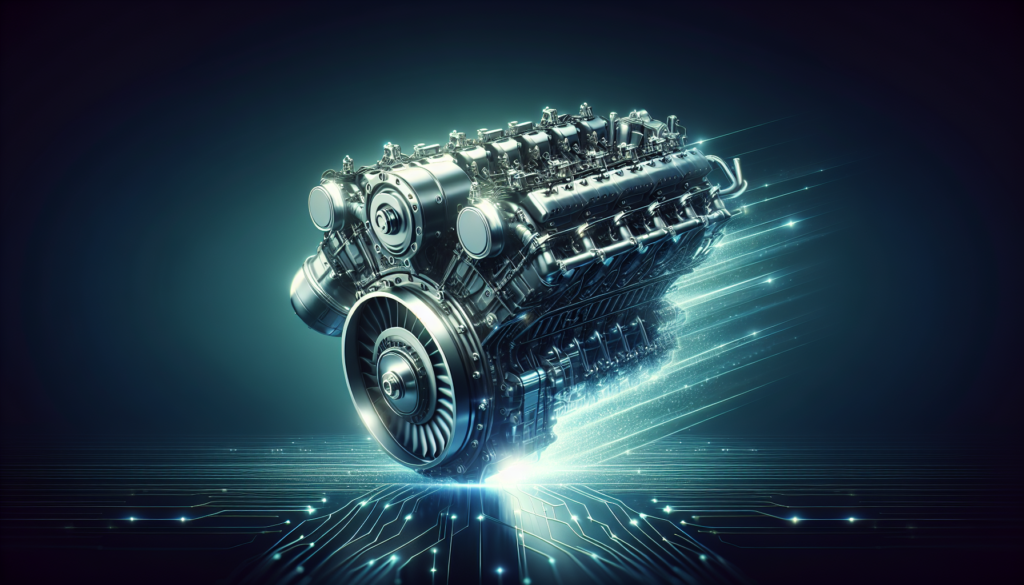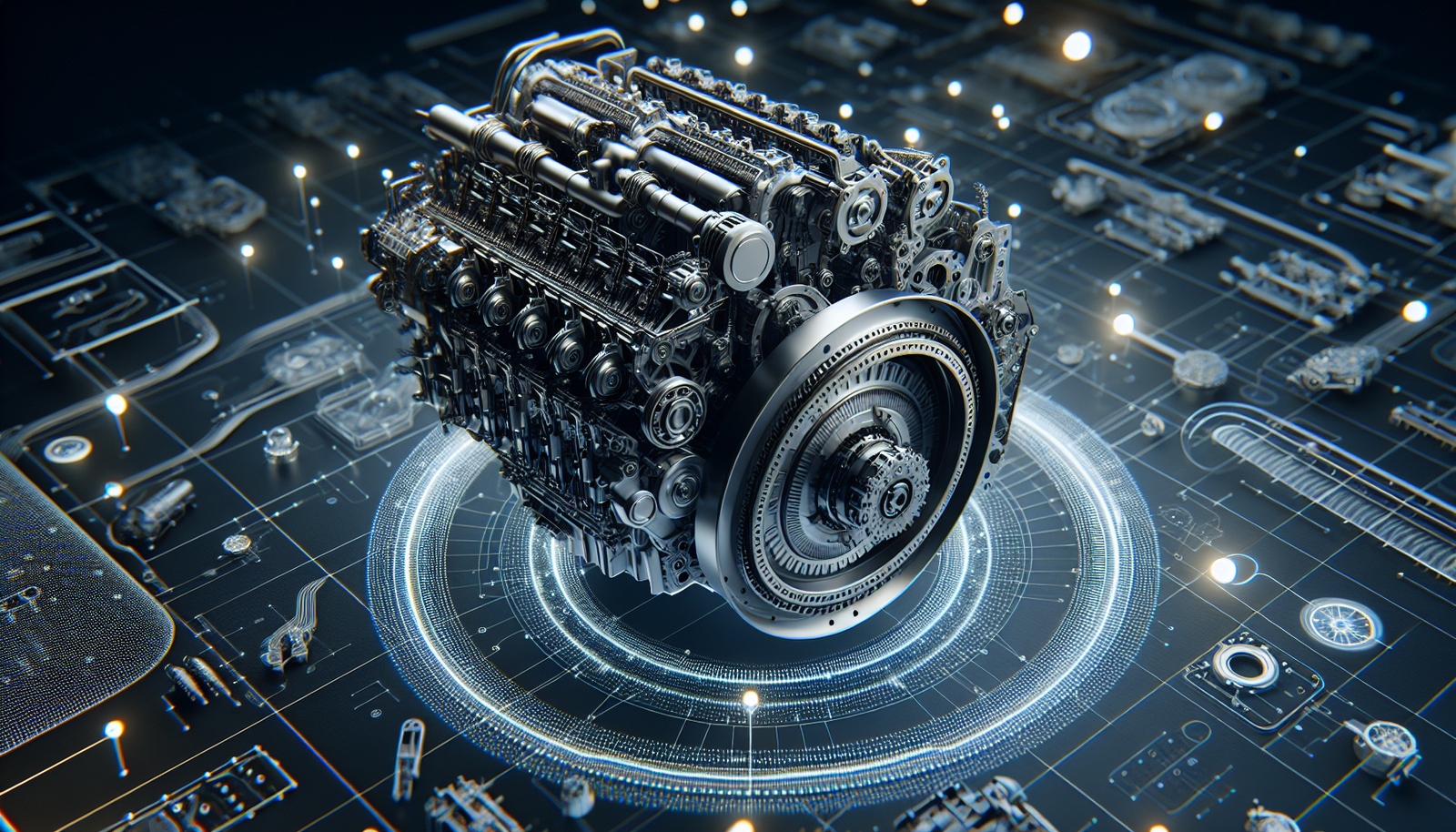As a boat enthusiast, you’re no stranger to the continuous evolution of boat engines. Pulling from recent research and innovations, “Advancing Technology for Clean and Efficient Boat Engines” explores the forward momentum in the industry towards eco-friendlier and performance-boosting solutions. You’ll get a comprehensive look at some of the latest breakthroughs that are shaping the future of marine technology, promising less pollution and greater efficiency on the water. Buckle up, because this journey is just beginning, and it promises to be a thrilling ride!

The Need for Clean and Efficient Boat Engines
When it comes to boating, one essential aspect you need to focus on is having a clean and efficient engine. Unlike when it’s your car that’s causing pollution, it’s harder to see the toxic fumes and hazardous waste that your boat expels drifting into the water. However, this doesn’t make the implications any less significant. To mitigate this negative impact, boats and marine vehicles are in dire need of clean and efficient engines.
Marine Pollution From Traditional Boat Engines
It’s common knowledge that harmful emissions from traditional boat engines form a significant part of marine pollution. The multiple pollutants released from these engines, including carbon monoxide, sulfur oxides, and nitrogen oxides can lead to severe water contamination and pose a major threat to aquatic life. Not to mention, these pollutants can also contribute to the phenomenon of ocean acidification and global warming.
Fuel Efficiency and Cost Savings
Another notable upside of clean and efficient boat engines lies within the realm of fuel efficiency. Traditional boat engines are typically very fuel-intensive, and given the rising costs of fuel, that would mean a hefty fuel bill. Thus, adopting more energy-efficient engines will yield significant cost savings in the long-run.
Regulations and Standards on Boat Emissions
Governments and legislative bodies worldwide have put forth rigorous regulations and standards to curb harmful boat emissions. These norms mandate that marine vehicles adhere to certain emission levels, pushing the marine industry to seek out cleaner, more efficient engine technologies as a necessity, rather than an option.
Current Technologies for Cleaner, More Efficient Boat Engines
In the pursuit of cleaner oceans and more sustainable boating, many technologies have surfaced to counteract the pollution caused by traditional boat engines.
Clean Diesel Technology
First off, let’s talk about clean diesel technology. With superior energy efficiency and substantial CO2 emissions reduction when compared to their counterparts, diesel engines are making a comeback. Especially when combined with technologies such as a common rail fuel injection system, the outcome is a remarkably clean and efficient engine.
Hybrid Propulsion Systems
The marine industry has also started to delve into the world of hybrid propulsion systems. This technology involves the use of two or more different kinds of power sources, such as a diesel engine paired with an electric generator. Hybrid systems not only improves fuel efficiency but also helps decrease pollution levels.
Electric and Battery Powered Engines
With advancements in battery technology, completely electric and battery-powered boat engines are becoming more practical. These engines offer zero emissions, making them an optimal solution for addressing marine pollution.
Advanced Diesel Technologies
As stated above, a diesel engine can be a clean and efficient option, especially when paired with advanced technology.
Common Rail Fuel Injection Systems
One of the advanced diesel technologies is the Common Rail Fuel Injection system. This technology allows for greater control over fuel injection, leading to improved combustion efficiency and reduced emissions.
Exhaust Gas Recirculation (EGR)
Another advanced diesel technology is the Exhaust Gas Recirculation (EGR) system. It works by recirculating a portion of the engine’s exhaust gas back to the engine cylinders to reduce nitrogen oxide emissions.
Diesel Particulate Filters (DPF)
Diesel Particulate Filters (DPF) are designed to remove particulate matter from the exhaust. With this technology, soot emissions can be effectively reduced, resulting in cleaner exhaust gases.
Selective Catalytic Reduction (SCR)
Here’s another notable diesel technology – Selective Catalytic Reduction (SCR). This technology uses urea-based solutions to convert harmful nitrogen oxides into harmless nitrogen and water.

Hybrid Propulsion Systems
Hybrid propulsion systems combine the power of two or more individual power sources, offering both diesel and electric propulsion as needed.
Series Hybrid Systems
In a series hybrid system, the diesel engine isn’t directly coupled to the propeller but is instead used to charge a battery. The electric motor, then supplied by the battery, is what propels the boat.
Parallel Hybrid Systems
In a parallel hybrid system, both the diesel engine and an electric motor are linked to the propeller shaft. Depending on the required power output, the boat can run either on diesel, electric power, or a combination of both.
Plug-in Hybrid Systems
Unlike the first two, plug-in hybrid systems are recharged by connecting to an external power source, making it possible to take advantage of renewable energy sources when docked.
Regenerative Braking Systems
Regenerative braking systems allow energy usually lost in braking or slowing down to be regenerated and stored in the battery for later use, further enhancing efficiency.
Electric and Battery Powered Engines
Electric and battery-powered engines provide a promising solution to the pollution caused by traditional boat engines.
Lithium-Ion Batteries
These batteries are lighter, last longer and charge faster than their the traditional lead-acid counterparts, making them a great choice for electric boat engines.
Fuel Cell Technology
Fuel cell technology is serving as a practical alternative to batteries. These cells generate electricity through a chemical reaction, producing only water as a byproduct.
Solar Powered Marine Engines
Another advent in the realm of greener marine engines is solar power. Harnessing the power of the sun to propel the boat, solar-powered marine engines leave zero carbon footprint.
Emerging Technologies for Boat Engines
While it’s true that much progress has been made in the development of cleaner, more efficient boat engines, the innovation within this realm is far from over.
Autonomous Marine Vehicles
One of the exciting prospects is the advent of autonomous marine vehicles. With the ability to run on renewable energy, such unmanned marine vehicles could potentially have minimal environmental impact.
Algae Biofuel Power
Another intriguing development is the use of algae to generate biofuel. Certain types of algae can produce high amounts of oil, which could be refined into biofuel to power boat engines.
Hydrogen Fuel Cells
One of the more advanced solutions on the horizon is hydrogen fuel cell technology. They operate similar to electric batteries but are capable of producing electricity as long as there’s a supply of hydrogen fuel and oxygen, emitting only heat and water as byproducts.
Challenges to Implementing Clean and Efficient Marine Engine Technologies
Even though these technologies show immense promise, there are, however, a number of obstacles that need to be tackled.
Technological Constraints
Though seemingly promising, some of these technologies still face technological constraints. For instance, electric-powered engines might be clean but they often lack the power output and range required for larger vessels or sustained operation.
Economic and Market Factors
On the economic side, many of these cleaner, more efficient engine technologies come with quite the price tag. Thus, until the costs of production are lowered, they might remain out of reach for many boat owners.
Regulatory and Infrastructure Challenges
Regulatory standards and the lack of necessary infrastructure can also hinder the uptake of these technologies. For instance, the lack of charging stations can impede the usage of electric or hybrid boats.
Research and Development Trends
With the growing need for cleaner, efficient marine engines, researchers are working tirelessly to solve the existing challenges and improve upon current technologies.
Modern Combustion Mechanisms
There’s substantial research being conducted into modern combustion mechanisms that aim to reduce pollutant emissions while improving fuel efficiency.
Exhaust Aftertreatment Systems
Research is also being devoted to improving exhaust aftertreatment systems that help to further reduce harmful emissions.
High Efficiency Energy Recovery
Significant effort is being put into the development of high-efficiency energy recovery systems. These systems aim to capture and utilize waste energy, thus maximizing efficiency.
Advanced Hybrid Systems
We also see extensive research into advanced hybrid systems that blend different power sources in new, more efficient ways.
Case Studies of Advanced Boat Engine Technologies
Some countries and businesses are already leading the way in the adoption of cleaner, efficient marine engines.
Electric Ferries in Norway
Take Norway, for example, where electric ferries – powered by vast banks of lithium-ion batteries, have started to take over waterways, resulting in substantial reductions in fuel costs and greenhouse gas emissions.
Hybrid Yachts in the United States
In the United States, some luxury yacht makers have begun to incorporate hybrid propulsion systems into their designs, offering quieter, less polluting alternatives to traditional power systems.
Biofuel-Powered Fishing Boats in Brazil
In Brazil, fishing boats run on biofuel derived from waste fruits and vegetables, showcasing a practical and eco-friendly solution to marine pollution.
The Future of Cleaner, More Efficient Boat Engines
Looking forward, it’s clear that clean, efficient marine engines aren’t just a mere concept anymore. They’re quickly becoming the new norm in the boating industry.
Potential Technological Innovations and Breakthroughs
The rise of new technologies and breakthroughs are expected to further push the boundaries of what’s possible in boat engine efficiency and cleanliness.
The Role of Government and Industry in Accelerating Adoption
The government and industry need to play a crucial role in this transition, by providing financial incentives, enacting environmental regulations, and supporting research and development into clean marine engine technologies.
Long-Term Environmental and Economic Impact
The implementation of these technologies not only holds immense potential for environmental benefits, such as cleaner air and oceans, but also comes with worthwhile economic implications, including energy cost savings and new job opportunities in green technology sectors. The time for cleaner, more efficient boat engines is now, and the potential rewards are absolutely worth the efforts.


[…] experiencing a remarkable shift towards sustainability as well. This article “Innovations in eco-friendly propulsion systems for Boats” showcases the latest advancements in green technology in the boating industry. […]